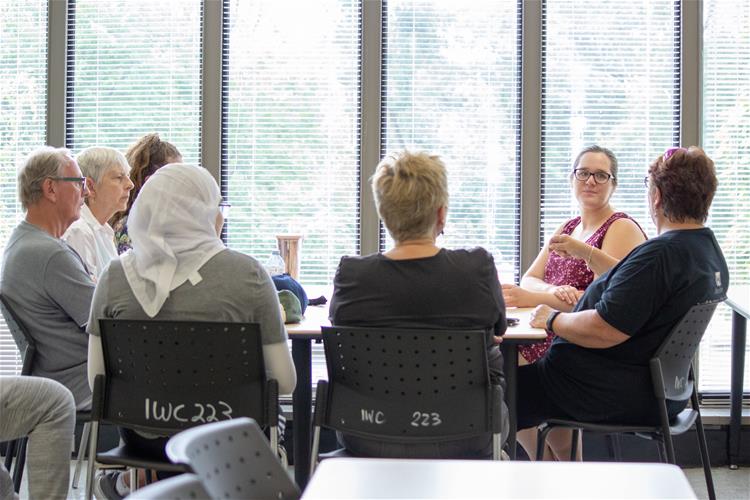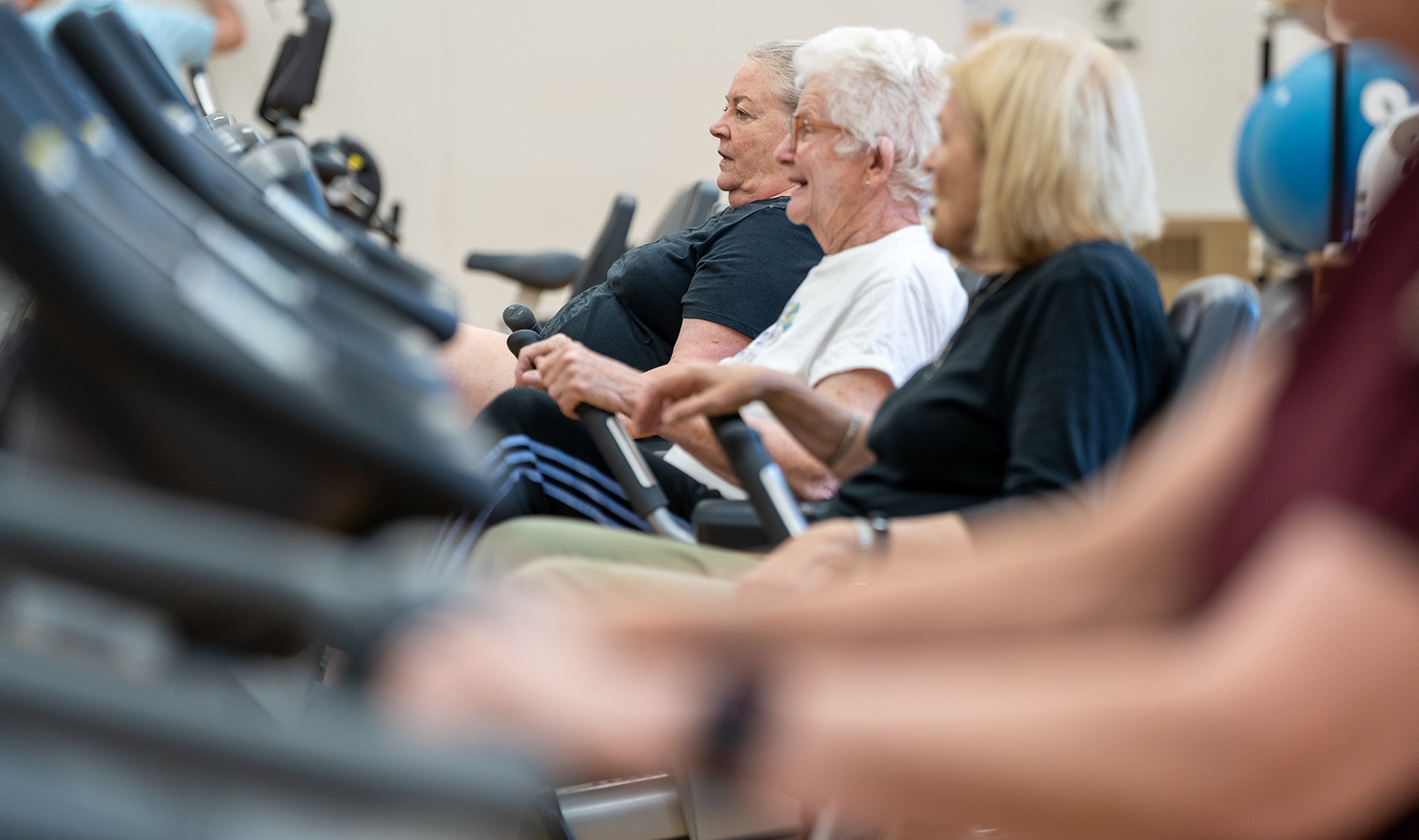
Hamilton-based community partners engaging in a study at McMaster University.
Published: June 6, 2019
Older adults range in age from 65 to 105 and represent widely varying health and social needs, yet this growing cohort is often grouped in one category. Two established research platforms of McMaster University aim to address the diverse needs of Ontario’s older adults by supporting and advancing patient and caregiver-partnered research in aging.
The McMaster Institute for Research on Aging (MIRA) and the McMaster School of Nursing’s Aging, Community and Health Research Unit (ACHRU) have formed the newest research centre in the Ontario SPOR SUPPORT Unit (OSSU) network.
This is a network of 15 health research centres across the province that provide scientific knowledge and support high quality patient-partnered research with the goal of improving health and the health system.
The new Centre, called the MIRA | Collaborative for Health & Aging, has received $300,000 from OSSU to establish its activities over the course of one year. Parminder Raina and Maureen Markle-Reid, who are scientific directors of MIRA and ACHRU respectively, will co-lead the centre.
“We are looking forward to working with stakeholders from across Ontario to develop a robust research agenda that engages patients and their families and improves the health and well-being of older people,” said Markle-Reid, who is also a professor in nursing at McMaster. She holds a Tier 2 Canada Research Chair (CRC) in Person-Centered Interventions for Older Adults with Multimorbidity and their Family Caregivers.
Older adults make up a significant portion of Canada’s population and are extremely diverse in health and social expectations. “The focus of the collaborative is on supporting older adults in our research, knowing that there is no typical older person. In the same way you wouldn’t compare a 10-year-old to a 30-year-old, you cannot compare a 65-year-old to a 95-year-old.” said Raina, who stresses this factor as an important consideration both when conducting and translating research.
Raina is a professor of health research methods, evidence and impact at McMaster and lead investigator of the Canadian Longitudinal Study on Aging (CLSA).
He added that developing science-based knowledge and solutions that promote healthy and productive aging and strengthen patient-research-policy connections are driving forces behind the potential success of the centre. Researchers and student trainees, as well as patients, decision makers and clinicians, from across the province will benefit from the centre’s expertise.
“The addition of the MIRA | Collaborative for Health & Aging to OSSU’s network of research centres will fill a gap in aging expertise for patient-oriented researchers in Ontario,” says Vasanthi Srinivasan, OSSU executive director. “We look forward to working with the collaborative to champion patient-oriented research in Ontario, with a special focus on addressing the unique needs of older patients.”
Community partner Gail Heald-Taylor, both a caregiver and older adult herself, said: “Patients and their caregivers are getting older, living longer and sometimes living sicker. Being a community partner from the perspective of an aging caregiver gives me a sense that my role is valued and my lived experience is validated.”
Specifically, the collaborative will focus on five core objectives:
- Advancing the science of patient engagement to ensure representation of patient needs, perspectives and aspirations at all levels of health care decision-making;
- Supporting the implementation, evaluation, scale and spread of patient-centred innovations;
- Supporting access to key data holdings and creating frameworks to share relevant data in a timely manner;
- Promoting collaborations and partnerships which facilitate, connect and integrate activities across the province and builds capacity for Ontario to champion evidence- and value-informed decisions for health care improvements;
- Creating, enhancing and developing the capacity of system stakeholders (patients, researchers, clinicians, caregivers, policymakers) to engage in patient-oriented research.
The collaborative will have access to more than 100 researchers from across all six McMaster Faculties who are exploring a range of topics related to older adults, their caregivers and communities, such as bone health, mental health, social isolation, living with multiple chronic conditions, aging in place, and more.
For more information, please contact MIRAcollaborative@mcmaster.ca or visit miracollaborative.ca​

